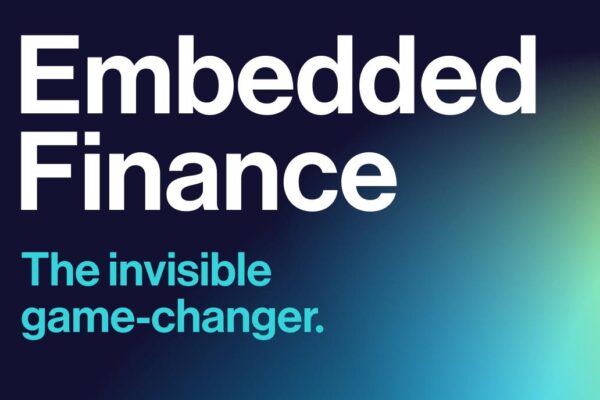5 fintech trends that will shape the industry in 2024

by Denise Johansson, co-CEO & co-founder of Enfuce
The fintech scene has been anything but dull these past few years. I mean, we’ve seen it all. From the explosion of blockchain tech and cryptocurrencies to the lighting-fast spread of AI. And I’m pretty sure I’m not the only one thinking these trends are here to stay, marking a profound turning point for the industry and beyond. Here at Enfuce, we’re always keeping an eye on the newest trends and the latest tech that can really amp up products and services to the next level. After all, we were the first to bring payment processing to the public cloud! That’s why, as we step into 2024, I wanted to take the opportunity to talk about the trends that will be stealing the spotlight over the next 12 months.
1. Stricter Regulations Usher in New Era for RegTech
In 2023, increased scrutiny on fintech compliance led to a shift in regulatory attitudes. Looking ahead, authorities are expected to adopt an even more stringent approach in granting authorisations, limiting new licenses to companies with strong business models and compliance practices.
The industry’s maturation will demand a higher level of compliance and risk management, even for newly founded fintech companies who will be required to have a deeper understanding of regulated business practices than in the past. Additionally, regulations like the Digital Operational Resilience Act (DORA) will create business opportunities for cloud-native tech providers like Enfuce to offer resilient and secure solutions that meet the regulatory standards set forth in the evolving landscape.
2. Increased Investor Appetite For Long-term Profitable and ESG-Aligned Businesses
One notable change on the horizon is the end of price wars. Players that have engaged in aggressive pricing strategies to secure significant clients may find it challenging to sustain their operational margins and maintain shareholder expectations for profitability. As the industry matures, the focus is shifting from acquiring logos at any cost to demonstrating sustainable growth and profitability. Companies will need to strike a balance between competitive pricing and maintaining healthy margins to ensure long-term viability.
At the same time, increased attention will be directed towards companies that align more closely with ESG practices and that can integrate sustainable business practices effectively. Fintechs with robust unit economics, a focus on operational efficiency and ESG policies, and strategies for sustainable growth are likely to attract significant funding.
3. Expanded Use of AI and ML for Improved Efficiency
Legacy technology is expected to face continued challenges in the issuer processing space. The evolution of new-age processors, characterised by more advanced and agile technologies, will put additional pressure on legacy systems. In 2024, the fintech industry is poised to witness a broader integration and maturation of Artificial Intelligence (AI) and Machine Learning (ML) applications.
Fintech companies will increasingly leverage these technologies not only for advanced data analytics but also to enhance operational efficiency across various facets of their services. This shift will not only streamline internal operations for fintech firms but also result in more personalised and efficient financial services for end-users.
4. Continued Trend of Embedded Finance into New Verticals:
Beyond the traditional partnerships with e-commerce and technology companies, embedded finance will continue to extend into even more diverse sectors such as healthcare, transport, HR and education. Fintech companies and non-financial businesses alike will explore new and creative ways to embed financial services, creating a more interconnected and accessible financial ecosystem.
5. Returning Trend of Digital and Crypto Currencies
As regulatory clarity improves and institutional interest grows, digital currencies, including central bank digital currencies (CBDCs), are likely to gain traction. Additionally, the continued evolution of decentralised finance and the maturation of the crypto market may contribute to a broader acceptance of digital assets. Fintech companies will explore innovative ways to incorporate digital currencies into their offerings, and traditional financial institutions may increasingly explore partnerships and services related to the crypto space.
To wrap up, an exciting year lies ahead. From greater efficiency and clearer regulation to more sustainable businesses – just to mention a few trends – 2024 truly stands out as a year of great transformation. The fintech revolution is moving at a very fast pace – and we’re here for it! And what else is in store for Enfuce in 2024? Stay tuned for more updates – exciting developments are on the horizon as we continue to pioneer and push the boundaries of the sector.



